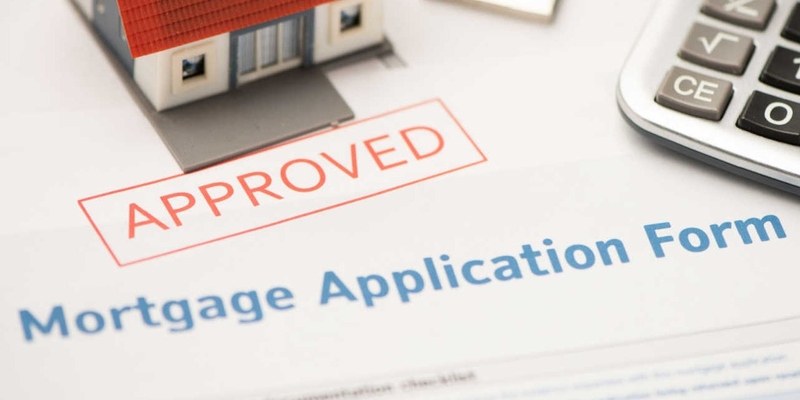Understanding TD Bank's Home Equity Offerings
Mar 19, 2024 By Susan Kelly
TD Bank offers various options for individuals seeking to leverage their home equity. From home equity loans to lines of credit, TD Bank provides solutions tailored to different financial needs. In this article, we will explore the specifics of TD Bank's home equity products, including rates, requirements, and features, to help you make an informed decision.
1. Home Equity Loans at TD Bank
Borrowers experience the predictability of a fixed-rate home equity loan from TD Bank; they receive an upfront lump sum, simplifying budgeting for significant expenses such as home renovations, debt consolidation, or other needs. The loan offers stability and peace of mind with its standard feature which is regular fixated monthly payments over an already determined term. TD Bank may also provide flexible repayment options. This allows borrowers to select the loan term, an aspect significantly tailored to them. wards their unique financial situation.
Moreover, TD Bank frequently offers home equity loans with competitive interest rates. This renders these loans appealing to borrowers who wish to utilize their house's equity. Borrowers can shield themselves from potential fluctuations in interest rates by fixing a rate; this imparts certainty to their financial planning. Nevertheless, borrowers must scrutinize their capacity for repayment and long-term financial goals meticulously before pledging themselves to a home equity loan.
- Consideration: Before applying for a home equity loan, consider consulting a financial advisor to assess your overall financial situation and determine if this type of loan aligns with your long-term goals.
- Caution: Be cautious of borrowing more than you can afford to repay, as defaulting on a home equity loan can lead to foreclosure on your home. Ensure you have a solid repayment plan in place before taking out a loan.
2. Home Equity Lines of Credit (HELOCs)
Borrowers benefit from the flexible borrowing option that TD Bank's home equity lines of credit (HELOCs) provide. Operating as a revolving line of credit, unlike a traditional loan, HELOCs permit borrowers to withdraw funds up to an established credit limit as and when required. This adaptability proves advantageous for ongoing expenses such as educational costs or home improvements where the required total amount might fluctuate over time.

TD Bank's Home Equity Lines of Credit (HELOCs) frequently feature adjustable interest rates, a characteristic that proves advantageous amidst low-interest environments. Borrowers stand to gain from these. They often enjoy lower initial rates in comparison to fixed-rate loans. This has the potential of diminishing their borrowing costs over short-term periods. Further yet, during the draw period which usually spans several years, HELOCs generally present an attractive option for borrowers with interest-only payment options available. Its a bonus that instills greater flexibility into cash flow management strategies.
- Fact: HELOCs often have a draw period during which borrowers can access funds, followed by a repayment period during which they must repay the outstanding balance. Borrowers must understand these terms and plan their borrowing accordingly.
- Noteworthy: TD Bank may offer introductory promotional rates on HELOCs, providing an opportunity for borrowers to save on interest costs during the initial period. Be sure to inquire about any available promotions when considering a HELOC.
3. TD Bank Home Equity Rates and Fees
Evaluating TD Bank's home equity products necessitates borrowers to ponder the associated rates and fees. Typically, TD Bank proffers competitive interest rates on both home equity loans and HELOCs. However, these rates can fluctuate based on variables such as creditworthiness, loan amount, and term. Those boasting excellent credit scores alongside robust financial profiles may secure eligibility for the lowest available rates: a testament indeed to their favorable standing in this regard.
Borrowers must also remain cautious of potential fees tied to TD Bank's home equity products, beyond interest rates. Such charges might encompass origination fees, closing costs, and annual maintenance expenses. The loan's outset incurs origination fees, which serve to cover processing costs; meanwhile, the loan closing process triggers the onset of closing costs. If applicable, the institution charges annual maintenance fees for the entirety of your loan or HELOC.
- Consideration: Compare the interest rates and fees offered by TD Bank with those of other lenders to ensure you're getting the most competitive terms for your home equity product.
- Fact: TD Bank may offer rate discounts for existing customers or those who opt for automatic payments from a TD Bank checking or savings account. Be sure to inquire about these potential discounts when applying for a home equity loan or HELOC.
4. Requirements for TD Bank Home Equity Products
Applicants must satisfy specific eligibility criteria to qualify for a home equity loan or HELOC with TD Bank. These typically encompass factors such as credit score, debt-to-income ratio, and loan-to-value ratio. Further, TD Bank might stipulate that applicants need to accumulate a minimum amount of equity in their home, often defined by the percentage remaining after deducting any existing mortgage balance from the appraised value of the property.
TD Bank also assesses the borrower's capacity to repay the loan through an evaluation of their income and financial stability. Applicants boasting higher credit scores along with reduced debt levels stand a greater chance of qualifying for advantageous terms and diminished interest rates. Prospective borrowers should review diligently their financial documents as well as credit reports before applying for home equity products. This step ensures they meet TD Bank's eligibility requirements.
- Fact: TD Bank may require a property appraisal to assess the current market value of the home and determine the maximum loan amount available to the borrower.
- Noteworthy: Borrowers may need to provide documentation of their income, employment history, and other financial assets as part of the application process for a home equity loan or HELOC.
5. Applying for a TD Bank Home Equity Product

The application process for a TD Bank home equity loan or HELOC involves several steps, beginning with gathering the necessary documentation. Applicants must provide proof of income, property information, and identification to support their loan application. Once the required documents are assembled, borrowers can choose to apply online, over the phone, or in person at a TD Bank branch, depending on their preference and convenience.
TD Bank reviews the applicant's financial information and credit history during the application process to evaluate eligibility for a home equity product. This assessment involves income verification, employment status confirmation, and existing debt scrutiny to gauge the borrower's capacity to repay the loan. Moreover, TD Bank might carry out a property appraisal. This is done not only to ascertain the value of the home but also to confirm that it fulfills collateral stipulations set by the lender.
- Consideration: Be prepared to provide accurate and up-to-date financial information during the application process to expedite the loan approval process and increase your chances of qualifying for a home equity product.
- Fact: The timeline for loan approval and funding can vary depending on factors such as the completeness of the application, the complexity of the loan, and TD Bank's internal processing procedures. Borrowers need to stay in communication with their loan officer and provide any requested documentation promptly to avoid delays.
6. Managing Your TD Bank Home Equity Account
Upon approval for a home equity loan or HELOC, TD Bank opens the gateway to its efficient online banking platform or mobile app. Borrowers can then manage accounts with ease, view balances conveniently, make swift payments, and track expenses from any location blessed with internet access. Such flexibility empowers borrowers to master their finances by monitoring real-time activity on their home equity accounts.
TD Bank, furthermore, furnishes customer support services. This aid is designed to address any queries or apprehensions borrowers might have about their home equity account. Troubleshooting technical issues with online banking or seeking clarification on account terms and conditions. It's comforting that borrowers can lean into the expertise of TD Bank's knowledgeable representatives for guidance in these areas. Moreover, recognizing the importance of informed decisions, TD Bank offers educational resources along with financial planning tools specifically tailored towards enhancing a borrowers understanding of their home equity accounts.
- Noteworthy: TD Bank may offer incentives for borrowers who set up automatic payments or maintain certain account balances, such as fee waivers or interest rate discounts. Be sure to inquire about any available benefits or rewards associated with your home equity account.
- Caution: Monitor your home equity account regularly to detect any unauthorized transactions or unusual activity. Report any discrepancies to TD Bank immediately to prevent potential fraud or identity theft.
Conclusion
TD Bank, in a bid to cater to its customers' diverse financial needs, has designed an array of home equity products. If you seek a fixed-rate loan for a specific project or require flexible line credit, be it ongoing expenses, TD Bank offers options boasting competitive rates and convenient features. Comprehending the nuances within TD Bank's home equity offerings empowers you to discern whether these align with your unique set of financial goals and circumstances.

Exploring Mortgage Options
Mar 19, 2024
Explore types of mortgages including Navy Federal Credit Union and USAA mortgages. Uncover key differences and considerations for homebuyers.

Navigating Home Equity Loans
Mar 19, 2024
Uncover the best home equity loan options with a Home Equity Loan Finder. Compare loans easily for informed decisions.

What Are the Community Property Rules for Federal Income Tax Returns?
Feb 19, 2024
The term "community property" describes how a married couple's assets are treated under the law in certain states in the United States. In a marriage, both partners share equally in the breadwinner's earnings and the ownership of all tangible and intangible assets acquired by either partner during the marriage.

All About Interest Rate Trends for Card, Auto, and Mortgage Loans
Feb 03, 2024
Since the Federal Reserve began monitoring it, interest rates on 72-month new auto loans have remained below 6%, reaching a high of 5.63% in the fourth quarter of 2018. For two straight quarters in 2016, the rate stayed at 4.08%. The average interest rate for a 72-month loan on a brand-new vehicle is 5.19% as of the second quarter of 2022

Difference Between Gap Insurance And Loan/Lease Payoff
Jan 11, 2024
However, if you get gap insurance during that time frame, the insurer will pay the differential between the ACV and the loan balance if your automobile is totalled. Paying off a loan or lease allows you to buy the automobile anytime, but you'll still be restricted to paying off just a portion of its fair market value. Due to the little risk involved, both forms of coverage are reasonably priced, although businesses more often offer gap insurance. Although it's common knowledge that a brand-new automobile loses value the minute you drive it off the lot, you may not realize that it loses another 10% in value during your first month of ownership and another 20% during your first year.

Best Home Based Businesses
Nov 09, 2023
Get started on your journey to financial independence by exploring the best home-based businesses in 2021. Uncover profitable and rewarding options, from selling homemade products to launching an e-commerce store. Learn how you can take control of your future today!

What to Do After You Have Paid Off Your Car Loan
Feb 03, 2024
Congratulations, you have completed the process of paying off your automobile. So what do we do now? After you have paid off your auto loan, there are a few things that you should do, such as checking to see if you have any insurance discounts available, monitoring your credit ratings, and putting whatever funds you have towards a new objective

Lost Your Job Right Before Mortgage? What to do Now?
Dec 28, 2023
What Happens If You Quit Your Job Right Before a Mortgage Closes Purchasing a home is a major life event, but if you lose your job before closing, it may quickly turn into a nightmare.

Why to Take Out a Personal Loan
Jan 02, 2024
The lender will send the money for the loan once you have confirmed that you agree to the terms of the loan and signed the agreement for the loan. Make sure that you use the borrowed money in a responsible manner and for the purpose that it was intended. Try to avoid utilizing the money from the loan on things that aren't necessary or purchases that aren't important.

Understanding the Different Types of Property Deeds
Jan 09, 2024
A deed must be created to change who legally owns a piece of land. Typical types of deeds for several kinds of real estate are provided here

An Overview of Your Annual Credit Report and How to Use It
Oct 17, 2023
Maintaining or improving your credit and looking out for identity theft symptoms may be aided by checking your credit report. Access your free credit reports each year at AnnualCreditReport.com. You may utilize this portal once per calendar year to obtain a free copy of your credit report from the three main credit reporting agencies as federal law requires

What Is A Personal Loan?
Nov 16, 2023
If you can get a better deal elsewhere, going with a personal loan may not be the best alternative. However, there are also many compelling arguments in favor of picking them.